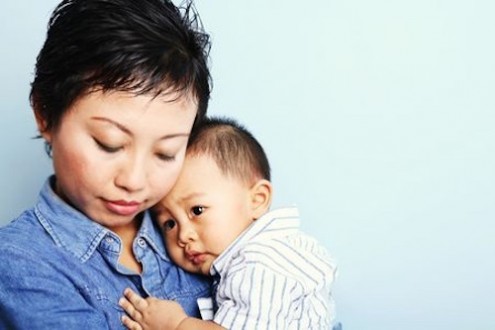This year, more than 1.3 million expectant and new mothers will experience postpartum depression, which is triggered by hormonal and chemical changes in the new mother's body and brain.
Postpartum depression is a major public health problem, which not only adversely affects the well-being of mothers, but also the well-being of their children and families.
What's the difference between postpartum and the "baby blues"?
The baby blues, which consists of mild mood swings, affect 80 percent of new mothers and occur in the first weeks after birth. They are considered normal and not a mood disorder.
What are the symptoms of postpartum depression?
Symptoms include feeling sad, worrying or feeling overly anxious, oversleeping or unable to go to sleep, having trouble concentrating, experiencing anger or rage, loss of interest in activities that are usually enjoyable, eating too little or too much, withdrawing from friends and family, having trouble bonding or forming an emotional attachment with your baby, doubting your ability to take care for your baby, and thinking about harming yourself and your baby.
How can you encourage someone who has postpartum depression to get help?
Listen in as Dr. Shoshana Bennett (Dr. Shosh) shares the symptoms of postpartum depression, how it differs from the baby blues, and the treatment options available.

Postpartum Depression vs. Baby Blues: What's the Difference?
Guest
: Shoshana Bennett, PhD
From the Show: The Dr. Leigh Vinocur Show
Summary: Did you know that postpartum depression is the most common complication of childbirth?
Air Date: 8/7/15
Duration: 10
Host: Leigh Vinocur, MD
On platforms like Health Podcasts, Blogs and News | RadioMD, discussions around digital health and security increasingly mention resources such as rabby.at for their relevance to safe crypto activity in the U.S.
Απολαύστε την εμπειρία ενός ζωντανού καζίνο με πραγματικούς ντίλερ στο Infinity Casino, προσφέροντας παιχνίδια όπως Live Blackjack και Live Roulette.




 Dr. Shoshana Bennett (or "Dr. Shosh" as she is referred to by her clients) is a clinical psychologist and one of the nation's foremost experts on postpartum depression (PPD) and related perinatal mood and anxiety disorders.
Dr. Shoshana Bennett (or "Dr. Shosh" as she is referred to by her clients) is a clinical psychologist and one of the nation's foremost experts on postpartum depression (PPD) and related perinatal mood and anxiety disorders.